Director’s Column
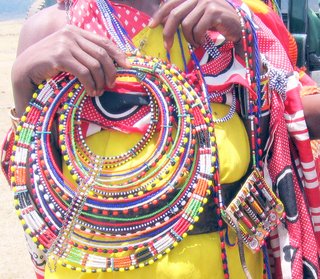
I came to the part of my digital photo album that covered my visit to the Pastoral Women’s Council, a refuge for Maasai women who have fled physical abuse and forced polygamous marriages. We spent a full morning there and learned about their needs. The Director is an incredibly impressive woman named
Suddenly I heard my dishwasher and the swish-swish of the water. I felt a little sick.
I have been having that small sick feeling every now and then since I returned from one of the most mind-altering voyages of my life. The trip was thrilling to me because I was able to fulfill a life-long dream of seeing lions, cheetahs, giraffes, elephants, zebras, wildebeest, baboons, gazelles and many other animals up close in their natural habitat. It was also a learning experience because I was able to walk around on the surface of a continent that had always somewhat repelled me, perhaps because I had had so many difficult dealings with a number of African governments during my time in
There are some images and memories that are indelible: a baboon sitting on a tree limb looking back at us with inscrutable calm—thinking no doubt that humans are funny looking; 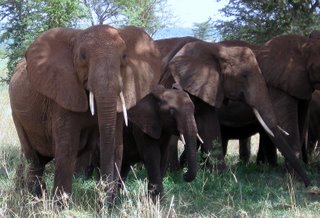 a tiny baby elephant surrounded and shielded by the matriarch and other family members of varying size and age; a group of giraffes gliding gracefully across a vast green savannah like tall ships; a young lion coming right at our vehicle with slow, languorous movements and then getting under our vehicle to take a nap in the shade; a young zebra who came up very close to our vehicle and stared at us curiously for a strangely long time; an elegant Thompson’s gazelle posing as though for a graduation portrait.
a tiny baby elephant surrounded and shielded by the matriarch and other family members of varying size and age; a group of giraffes gliding gracefully across a vast green savannah like tall ships; a young lion coming right at our vehicle with slow, languorous movements and then getting under our vehicle to take a nap in the shade; a young zebra who came up very close to our vehicle and stared at us curiously for a strangely long time; an elegant Thompson’s gazelle posing as though for a graduation portrait.
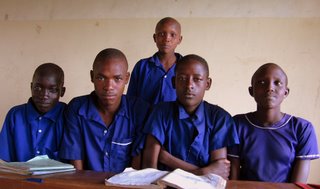 And there are other images: three orphanages in the smallish city of Arusha – in a country where one quarter of the adults are infected with HIV/AIDS, which is considered rather low; a young Maasi boy picking up a newly-born calf still slick from afterbirth—another creature added to the overgrazed land, but also adding to the boy’s status as his herd was now larger by one; a hard day spent with the Hudza tribe – hunter-gatherers who live hand-to-mouth literally by digging roots, plucking honeycombs out of trees, and hunting small dik diks with bows and arrows. No agriculture, no permanent settlement, no idea of where tomorrow’s food will come from. (This tribe will cease to exist in 20 years, as the government has taken all their school-aged children and put them in boarding schools. Let’s face it, those kids are not going to come back and dig for roots.)
And there are other images: three orphanages in the smallish city of Arusha – in a country where one quarter of the adults are infected with HIV/AIDS, which is considered rather low; a young Maasi boy picking up a newly-born calf still slick from afterbirth—another creature added to the overgrazed land, but also adding to the boy’s status as his herd was now larger by one; a hard day spent with the Hudza tribe – hunter-gatherers who live hand-to-mouth literally by digging roots, plucking honeycombs out of trees, and hunting small dik diks with bows and arrows. No agriculture, no permanent settlement, no idea of where tomorrow’s food will come from. (This tribe will cease to exist in 20 years, as the government has taken all their school-aged children and put them in boarding schools. Let’s face it, those kids are not going to come back and dig for roots.)
I recall our stop in a village for gas, important in this beautiful land where most people walk and where a bicycle confers eminent status….but not as important as water. Nothing is as important as water. We stopped along the roadside one day and bought the entire pile of tomatoes from an old woman, and she seemed very happy to have us wipe out her inventory.
So many memories. So many problems that are fixable. So many new friendships that I want to maintain with my six traveling companions and with my new African friends. Despite the difficult life endured by so many of the Hudza and Maasai people I met, I discovered in them a kind of peacefulness in their demeanor, an openness and a delight in small pleasures, an eagerness to make friends with us, a justified pride in the spectacular beauty of their landscape and wildlife, a respect for limits of all kinds—water, food, transportation and so many things I take for granted. No dishwashers there. No waste. Everything has value.
I am resolved to think more about Value, about what is really important in life. I am also resolved to think more about Values, with special care to avoid the distortion done to the concept lately by some political pundits.
One of the most wonderful results of the trip is that David Douglas, (Trustee of the Wallace Genetic Foundation and CEO of Waterlines, a nonprofit that works in the third world), has agreed to consider doing a potable water project for Maanda and her women’s refuge, mentioned above. That alone would make the whole trip worth it!

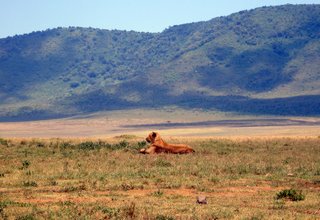
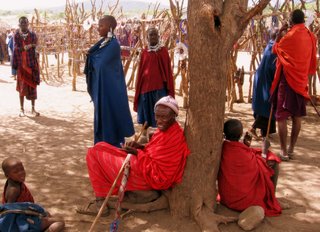
No comments:
Post a Comment